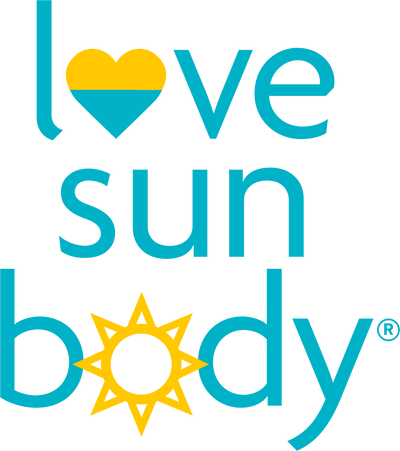A recent Nielsen report found Americans spend nearly half their day—11 hours to be exact – on their cell phones, tablets, televisions, computer screens and other devices.
Blue light (also known as HEV light) is neither UVA or UVB light. It has a short wavelength and high energy. There are natural sources of it (like the sun), but it can also come from man-made devices like LED, smartphones, computers, and fluorescence. Your movie, TV watching, FaceTime and Zoom meetings, all of your screen time all contribute to your blue-light exposure.
What are the effects of all this screen time and how is the blue light affecting our eyes, brains, and bodies?
As people spend more time on devices that are emitting blue light, members of the scientific and medical communities have raised concerns about the possible long-term effects of this exposure on both adults and children.
Light is made up of electromagnetic particles. These particles get around by traveling in waves and as they travel, they emit energy. Unlike like the longer kinds of light that are visible to the human eye, many of the varieties of light with shorter wavelengths aren’t visible to the human eye and are sometimes categorized as harmful light. Unfortunately, blue light falls into this second category.
Spending long periods of time staring at your phone’s screen can pose as much risk as getting too much direct sunlight. For context, ultraviolet light (UVA/UVB) is on the non-visible light spectrum and can penetrate to the first and second layers of skin. Blue light can reach all the way down to the third layer.
New studies on the potential hazards of infrared, along with the glow of blue light emitted from our device screens and light bulbs, show that exposure really may lead to skin damage and accelerated aging.
Perhaps the bigger concern is the HEV light generated by LED and compact fluorescent bulbs (those spiral-y ones) that are often found inside your home or office. To compare it to your computer, one hour of exposure to an LED bulb is equal to 15 minutes of sunlight. This radiation could aggravate symptoms in people who already suffer from skin conditions that make them exceptionally sensitive to light.
Dermatologists highlight that blue light can cause the breakdown of elastin and collagen, which are essential for keeping our skin supple and smooth. Many of these doctors advocate for skin protection from blue light for anyone spending long periods of time in front of a blue light screen.
Blue light can also have an impact on our sleep and not in a good way. In a recent study conducted by the Harvard Medical Center, researchers compared the effects of blue light exposure to those of other kinds of light on adults. The results showed that participants who were exposed to blue light were twice as likely to experience lower or suppressed melatonin levels and experience shifts in their circadian rhythms (two key components in how our body’s manage sleep).
As blue light enters the eye, it passes through the cornea and reaches the retina, one of the most sensitive and important parts of the eye at which point it has the ability to cause strain, fatigue, and induce premature aging.
Among long-term effects, two of the most common categories of eye strain that can be induced by blue light are:
Digital Eyestrain – Typically manifests as soreness, irritation, and difficulty focusing.
Retina Damage – Type of macular degeneration most commonly associated with age.
To practice caution with your devices, avoid close contact with your face and wear a headset or using Bluetooth.
The good news is this: there are steps you can take to protect yourself from blue light damage such as:
- You might want to consider wearing glasses designed to help protect your eyes from too much blue light.
- Limit your device usage to just a couple of hours and doing so in infrequent spurts.
- Because damage is based on the proximity to the device (how close your face is to the screen) and the size of the device, position the device away from your face.
- Wear sunscreen that can help product you from blue light such as a physical (aka mineral sunscreen) with a high amount of zinc oxide, titanium dioxide or iron oxide in its ingredients. This type of sunscreen works by blocking both UV and HEV light.
Love Sun Body 100% Natural Origin Mineral Sunscreen is made with over 20% zinc oxide o the safest UVA and UVB filters - SPF 30 formulas non-nano zinc oxide and SPF 50 formulas non-nano zinc oxide and non-nano titanium dioxide. All Love Sun Body sunscreens are formulated with vitamin E and plant-based moisturizers. Vitamin E is an antioxidant. Sunscreen containing vitamin E can also absorb the energy from ultraviolet (UV) light.
Unfortunately, chemical sunscreen is not suitable to protect against blue light. It works by allowing UVA/UVB light to penetrate the skin, but a chemical reaction then transforms the UV light into a non-damaging wavelength. While this process is effective to avoid sunburn or skin cancer, blue light is still able to penetrate the skin and cause damage.
Love Sun Body sunscreens are the first and only sunscreens in the U.S. certified by Ecocert Cosmos Natural to ensure the formula meets environmental standards and that all ingredients are traceable and truly 100% natural origin. The formulas have been clinically tested hypoallergenic and non-comedogenic, as well as being vegan and cruelty-free.
Love Sun Body formulas offer truly effective sunscreens, meeting and exceeding the regulatory requirements of the FDA OTC Monograph System, the European Commission’s recommendation on UVA protection and Health Canada Natural Health Products Regulations.

